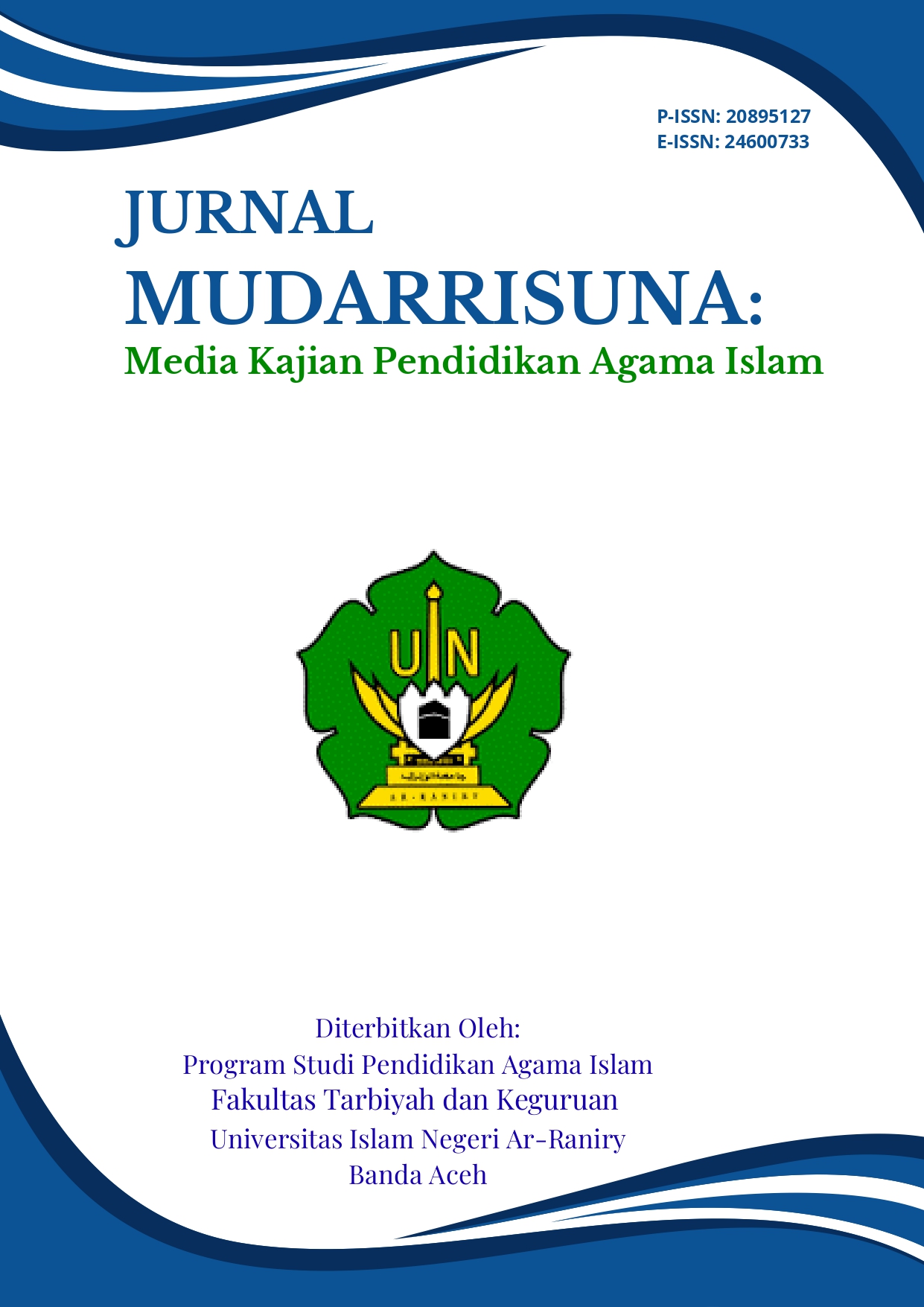PERMASALAHAN IMPLEMENTASI MODEL PJBL PADA GURU MADRASAH DI PROVINSI ACEH
DOI:
https://doi.org/10.22373/v54wec96Keywords:
Model PjBL, Kurikulum Merdeka, Guru MadrasahAbstract
The PjBL learning model is one of the most urgent learning models in dealing with the skills needed in the 21st century. The Teacher Professional Education Program (PPG) held at FTK UIN Ar-Raniry is a professional program where one of the materials taught is about the PjBL model. However, the reality is that PPG students are not skilled in applying it. This research uses a qualitative descriptive approach, which aims to describe a phenomenon as it is. The results of the study show that the implementation of the PjBL learning model in the Independent Curriculum in Aceh Province in general has succeeded in implementing the Project Based Learning (PjBL) learning model in accordance with its syntax. The problems faced by teachers in the implementation of PjBL are more external obstacles, such as low students' intellectual ability, lack of motivation to learn and limited learning facilities such as materials/tools, low motivation of senior teachers and limited time. Efforts to overcome obstacles to the implementation of PjBL are by providing motivation to students, using interesting learning media, and contributing according to the ability of each teacher. Good time management, mentoring and motivation from principals and other teachers for senior teachers in the use of technology and the implementation of new learning models and the creative use of alternative resources to overcome limitations of facilities and tools.
References
Ainia, D. K. (2020). Merdeka Belajar Dalam Pandangan Ki Hadjar Dewantara Dan Relevansinya Bagi Pengembangan Pendidikan Karakter. Jurnal Filsafat Indonesia, 3(3), 95–101.
Burkhardt, Gina., Monsour, Margaret., Valdez, Gil., Gunn, Cathy., Dawson, Matt., Lemke, Cheryl., Coughlin, Ed., Thadani, Vandana., Martin, Crystal. 2003. Century Skills: Literacy in the Digital Age. (Online) http://pict.sdsu.edu/engauge21st.pdf. diakses tgl. 25 Oktober 2023.
Fogarty, R. 1997. Problem- Based Learning & Other Curiculum Models for the Multiple Intelligences ClassRoom. New York: Sky light Traning and Publishing.
Hosnan. 2014. Pendekatan Saintifik dan Kontekstual dalam Pembelajaran Abad 21. Jakarta: Ghalia Indonesia.
Kasim, M. 2012. Paparan Wakil Menteri Pendidikan dan Kebudayaan Bidang Pendidikan: Implementasi Kurikulum 2013 dan Relevansinya Dengan Kebutuhan Kualifikasi Kompetensi Lulusan. Kementerian Pendidikan dan Kebudayaan. Semarang.
Kurniawan, N. A., Saputra, R., Daulay, A. A., & Zubaidah. (2020). Implementasi Prinsip-Prinsip Merdeka Belajar Bagi Calon Konselor.
S. Nasution, Asas-asas Kurikulum, Jakarta : PT Bumi Aksara, 2006
Lexy J. Moleong, Metodologi Penelitian Kualitatif, cet. XXI, Bandung: PT Remaja Rosdakarya, 2005.
Mujiburrahman, dkk, “Implementasi Model Pembelajaran Project Base Learnig Di Era Kurikulum Merdeka”, Jurnal: COMMUNITY: Jurnal Pengabdian Kepada Masyarakat, 2022. Vol. 2 No. 2 Oktober 2022 E-ISSSN: 2797-0159 P-ISSN: 2797-0574.
Kementerian Pendidikan, Kebudayaan, Riset dan Teknologi, Program Organisasi Penggerak, Yayasan Eduversal Indonesia, Modul Prjek Based Learning, Pebelajaran Berbasis Proyek. 2022.
Sutirman. 2013. Media & Model- Model Pembelajaran Inovatif. Yogyakarta: Graha Ilmu.
Wahdani, F. R. R., & Burhanuddin, H. (2020). Pendidikan Keluarga Di Era Merdeka Belajar. Al-Aufa: Jurnal Pendidikan Dan Kajian Keislaman, 2(1). https://doi.org/10.36840/alaufa.v2i1.271.
Wina Sanjaya, Strategi Pembelajaran Berorientasi Standar Proses Pendidikan, Jakarta: Prenada Media Group, 2008
Taufiq Amir, 2009, Inovasi Pendidikan Melalui Problem Based Learning, Bagaimana Pendidik Memberdayakan Pembelajar Di Era Pengetahuan, Jakarta: Prenada Media Group.
Trianto, 2009. Mendesain Model Pembelajaran Inovatif-Progresif, Jakarta: Prenada Media Group.
Downloads
Published
Issue
Section
License
Copyright (c) 2025 Mashuri Mashuri

This work is licensed under a Creative Commons Attribution-ShareAlike 4.0 International License.
Jurnal MUDARRISUNA: Media Kajian Pendidikan Agama Islam allows the author(s) to hold the copyright and to retain the publishing rights without restrictions. Authors who publish in this journal agree to the following terms:
- Authors retain copyright and grant the journal right of first publication with the work simultaneously licensed under a Creative Commons Attribution-ShareAlike 4.0 International License that allows others to share the work with an acknowledgment of the work's authorship and initial publication in this journal.
- Authors are able to enter into separate, additional contractual arrangements for the non-exclusive distribution of the journal's published version of the work (e.g., post it to an institutional repository or publish it in a book), with an acknowledgment of its initial publication in this journal.
- Authors are permitted and encouraged to post their work online (e.g., in institutional repositories or on their website) prior to and during the submission process, as it can lead to productive exchanges, as well as earlier and greater citation of published work.




